

GOLD Project Handbook
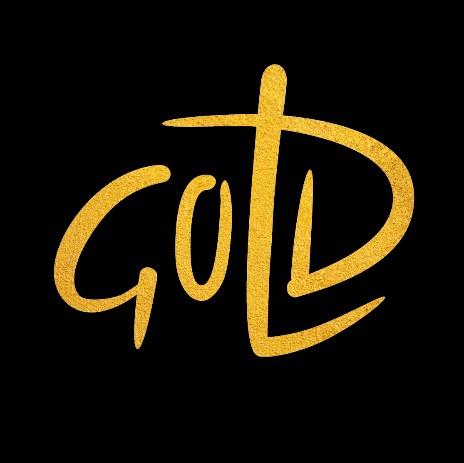
GOLD Project
1. What is distinctive about The GOLD Project?
The GOLD Project offers a flexible group-based Open Learning programme for anyone who:
• wishes to grow in knowledge of God and understanding of the Bible;
• is committed to systematic, disciplined and in-depth personal study;
• is ready to learn from others in small discussion groups;
• is willing to make use of God-given gifts for ministry and mission in the local church.
a. Personal and group study and personal application
GOLD Project courses combine individual study with facilitated group discussions to form a well-rounded way of learning. The focus of the courses is on applying what you learn to daily life
b. A biblical and disciple-focussed curriculum
GOLD Project courses focus on developing foundational knowledge of the Bible and basic Christian belief and also provides skills for effective involvement in local Christian leadership, including disciplined self-study, biblical interpretation, listening to others, evaluating different points of view, expressing one’s own view and writing short assignments related to personal discipleship and applying the Bible to the local church context.
c. Flexibility
GOLD Project courses can be used in all sorts of contexts to meet the training needs of a particular group of people. The biblical focus and flexible nature of the GOLD Project means that it is ideally suited for training house group leaders, church interns, youth group leaders and worship group leaders who will be given a firm basis for reflection on the different forms of ministry that take place in the local church.
d. Accessibility
GOLD Project courses are designed to be accessible to those with no previous theological study as well as to those who want to engage with the Bible at a deeper level. The courses are suitable for those who feel called to involvement in different avenues of ministry and mission in the local church as well as those who want to work out how to live more effectively as Christians in daily life whether at home or in workplace and society.
2. How GOLD Project courses work:
GOLD Project courses are designed to help you learn by means of:
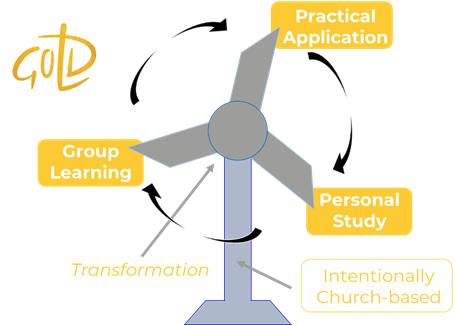
a.
Personal Study:
A workbook forms the basis for your personal study. You will need to set aside regular time for your study and you will probably need to find a suitable place where you won’t be distracted. We recommend that you come to your study in a prayerful attitude, ready to listen to what God has to say to you through the study of the Bible. We will give you the opportunity to write down your own opinions and thoughts and also to think how these may apply to you in your situation.
Each workbook is carefully designed to enable you to pace your study. The lessons require you to read and interact with the course material as well as with your Bible. At the end of each lesson, we
GOLD Project
encourage you to spend some time in reflection on how what you have learnt applies to you in the situation where God has placed you.
Additional readings are suggested at the end of every other lesson. These readings are not necessary for you to complete the Learning Activities for each Block, but you will need to make use of some of them when you write your Final Assignment for the course. You are encouraged to keep your own journal to reflect on what you are learning.
How much should I study each week?
Your GOLD Leader will agree with the group how fast you want to study and will tell you how much of the course materials need to be completed each week.
Possible patterns are:
Level 1
• For our Abundant Life course, the best pattern is to complete one lesson a week and to meet each week to discuss what you have learnt.
• For our Pure GOLD course, you can decide with your group leader whether you complete one or two lessons each time you meet and whether you meet each week or every other week.
Level 2
• Our ‘Following Jesus’ courses are designed so that groups meet each week and complete one block of study (2 or 3 lessons) each time they meet. In this way a course can be studied in one term (approximately 12 weeks including introductory and concluding meetings).
• Some groups have found more flexible ways of studying. We encourage you to meet weekly if possible.
Level 3
• One lesson a week – this means that each 5 block course will take 40 weeks to complete. Some churches which use our Open Learning Foundations courses for their weekly Bible Study have adopted this pattern. This will require you to set aside approximately 45 minutes each week for your personal study. In this pattern, groups often plan to take just one course in a year and organise their studies around term time.
• Two lessons a week – this means that each 5 block course will take 20 weeks to complete. We have several groups following this pattern which means that you need to set aside approximately an hour and a half each week for personal study.
• Four lessons a week – this was our original pattern and means that you can complete three courses in a year. Many groups continue to use this pattern. Some churches and Dioceses want students to complete a significant amount of work and this pattern has been appreciated by these churches. This pattern requires a significant commitment of about 3 hours personal study per week.
b. Group Meetings:
These are vital to the course. As part of the course, you will meet in your study group where you will have the opportunity to discuss points of interest that have arisen and think through with others how your learning may be applied. Not all questions have a clear answer and even if they did it would still be important to reach them for yourself. So you will often find in the feedback to a frame, ‘Your answer’ or ‘Discuss it in your group meeting’. Group meetings are usually lively and enjoyable times when you will get to know each other better, share your experiences, and apply what you have learnt to practical situations. Group meetings also give the opportunity to pray for each other as you put into practice what you have learnt.
GOLD Project
How often will we meet?
Your GOLD Leader will agree with the group how often you will meet together for discussion. This will usually depend on how quickly you want to complete the course. We recommend that you should meet together at least once a fortnight so that the issues you have studied in your course materials are still fresh in your mind when you come to the group meeting.
c. Personal Application
The purpose of GOLD Project courses is that they should transform the lives of those studying. Personal Application is encouraged in three areas:
• discipleship, learning to follow Jesus in daily life;
• ministry, using skills and gifts to build up other members of the body of Christ;
• mission, sharing the love of Christ in the world through word and deed.
How your learning is organised:
For each course you receive an interactive workbook which is carefully designed to help you learn at your own pace.
Each learning step is known as a ‘frame’. For each frame you are usually asked to make your own response. You have the opportunity to check your responses for each frame.
Each frame builds towards specific goals for the lesson you are studying. At the end of each lesson, you have the opportunity to review what you have learned.
At Levels 2 and 3, the lessons are organised into blocks of study which correspond to what will be discussed in the group meeting.
At each stage of your learning, you have an opportunity to demonstrate what you have learnt and to apply it to your own life.
Level 3
Each 5 Block course consists of 40 Lessons.
Blocks
Each course unit is divided into Five Blocks. As far as possible, each Block covers a significant subject or section of the course so that you feel that you have achieved something significant. At the end of the Block, there is normally a quiz and a learning activity for you to confirm what you have learned.
Lessons
Each Block is made up of eight lessons. Each lesson begins with a list of the objectives for that lesson so that you know what you can expect to achieve in that lesson. At the end of the lesson, you are given the opportunity to review what you have learnt. If you have about ¾ hr to spare (very roughly), you can complete one lesson.
Frames
Each lesson guides you through an interactive learning process in a step-by-step manner. Each learning step is known as a ‘frame’. For each frame you are usually asked to make your own response, either giving the answer to a question or noting your opinion on a subject to be discussed in the group meeting. Sometimes you are given other activities. This way of learning has proved to be effective in helping you retain what you have learnt.
5 Blocks x 8 Lessons = 40 lessons/ Course
GOLD Project
3. Assessment:
a. Forms of Assessment:
The assessment for our courses may take four forms:
1) Self-Testing: At the end of most lessons there is a section which reviews the material that we hoped you would learn. These self-test review sections are not marked by anyone, but you will find that if you do them, you will be surprised at how much you have learnt.
2) Reviews: Each course has regular reviews to be completed in the group meeting to encourage you to remember what you have learnt. If you have done your work and have tried the self-tests, these reviews should not be difficult.
3) Group Participation: You are encouraged to participate in every group session and to contribute to the group discussion by studying the sessions required, by listening to the views of others and by learning to express your own understanding of what you have studied.
4) Learning Activities and Final Assignment/Review: Those who want to take their learning to a deeper level can complete the regular Learning Activities and complete a Final Assignment or Final Review.
b. Recognition of Learning
The GOLD Project awards three types of Certificate to students who have engaged with our courses. None of our Certificates are presently accredited by any external body.
The Bronze Certificate
The Bronze Certificate is awarded to those who have successfully completed 60 credits at any Level.
The Silver Certificate
The Silver Certificate will be awarded to those who have successfully completed 120 credits. At least 30 credits should be from Level 2 or Level 3 courses.
The Gold Certificate
The Gold Certificate will be awarded to those who have successfully completed 180 credits. At least 60 credits should be from Level 2 or 3 courses of which at least 30 credits should be from Level 3.
c. Further study
It is possible to apply for advanced standing with some university courses on the basis of GOLD Project study and we are currently exploring further options for students who have completed GOLD Project modules and wish to use them as a basis for pursuing further full-time study towards accredited awards. Please contact us for details. The most important aim, however, is not to become qualified on paper but personally more qualified to serve God in his Church.
4. Our Courses :
Level 1
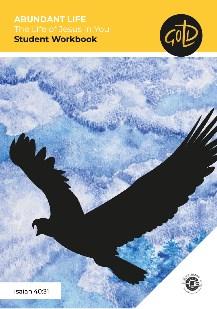
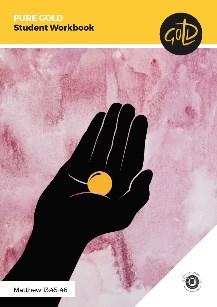
Abundant Life: The Life of Jesus in You
Abundant Life lays the foundations of the Christian life and how to live the "Abundant Life" offered by the Lord. The course consists of 18 lessons focussing on what it means to be a Christian, how to live the Christian life and what it means to participate in the local church. This course is available on GrowSpace.
Pure Gold
Pure Gold gives an excellent grounding in an overall knowledge and understanding of all the books of the Bible and how they fit together to give us a wonderful picture of God's plan for humanity. This course is available on GrowSpace.
Level 2
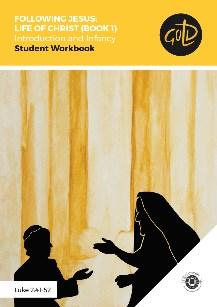
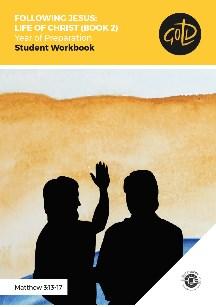
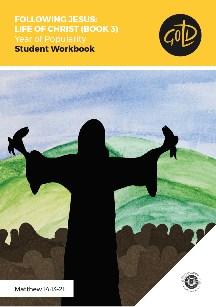
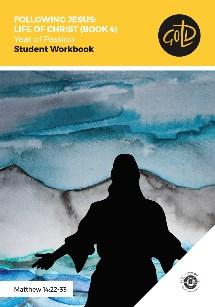
Following Jesus: The Life of Jesus Christ Book 1
This is the first of six courses studying the Life of Jesus Christ. It introduces the political and geographical situation in Palestine in the first century and presents the life of Jesus in five steps. It compares the childhood of Jesus in Matthew and Luke. It teaches how to use the three basic study techniques: observation, interpretation and application.
Following Jesus: The Life of Jesus Christ Book 2
This is the second of six courses studying the Life of Jesus Christ. The course studies the first year of the ministry of Jesus (Year of Preparation) and includes the baptism of Jesus, a study of doctrines of the Trinity and the attributes of God, the inspiration of the Bible and various issues in contemporary life.
Following Jesus: The Life of Jesus Christ Book 3
This is the third of six courses studying the Life of Jesus Christ. This course studies the second year of the ministry of Jesus (Year of Popularity). It describes Galilee and analyses the Sermon on the Mount, the miracles and the parables. It also teaches about prayer and how to prepare sermons, make home visits, bring others to Christ and plan a new church.
Following Jesus: The Life of Jesus Christ Book 4
This is the fourth of six courses studying the Life of Jesus Christ. The course studies the third year of the ministry of Jesus (Year of Passion). It introduces the doctrines of humanity, sin, death, and concepts about the human body, including practical matters such as: human relations, sex, marriage, family, possessions and ambition.
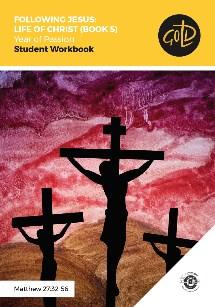
Following Jesus: The Life of Jesus Christ Book 5
This is the fifth of six courses studying the Life of Jesus Christ This course studies the events and teachings of the last week, day by day, including Jesus’ trials and the crucifixion. It gives detailed teaching of the geography of Jerusalem and history of the Temple. It also introduces Christ as prophet, priest and king, the significance of the Last Supper and the death of Christ.
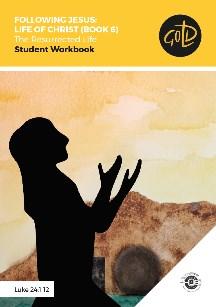
Following Jesus: The Life of Jesus Christ Book 6
This is the last of six courses studying the Life of Jesus Christ. This course covers Matthew 28 and the Acts of the Apostles. It studies the Resurrection, Ascension and Exaltation of the Lord, the Great Commission and how this was put into practice by the early church. It also considers the doctrine of the Holy spirit, baptism and the ministry of the church.
Level 3: Old Testament
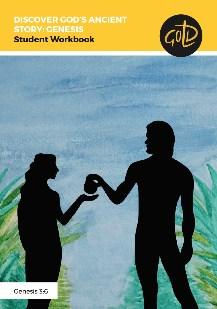
Discover God’s Ancient Story: Genesis
Genesis forms the backdrop for our understanding of God’s relationship with humanity, giving a basis not only for our understanding of God, but also our understanding of ourselves and the world we live in. Without avoiding controversial issues, this course seeks to give you the opportunity to understand something of the basis of God’s story and our place in his world.
This is a 5 Block course.
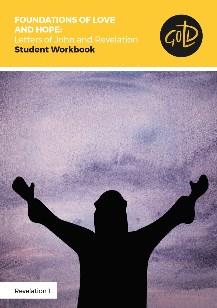
Foundations of God’s Covenant Community: Exodus to Deuteronomy
Set in the context of God’s deliverance of his people from the oppression of Egypt and his loving relationship with this covenant community, these books set down guidelines to enable them to live together and care for one another. You may find it surprising how relevant these obscure books may be.
This is a 5 Block course
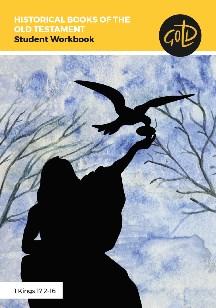
Historical Books of the Old Testament
This course deals with the ‘Pre-exilic Historical Books’ of the Old Testament and we hope that by the end you will have a good knowledge of the contents and teaching of these books. We also introduce biblical criticism: ways of dealing with problems that arise from the text itself: textual, literary and historical questions. Our aim is to be able to understand the Bible better. We shall find, however, that scholars can help us in this. Our third concern is the question of how to interpret passages of Scripture for today.
This is a 10 Block course
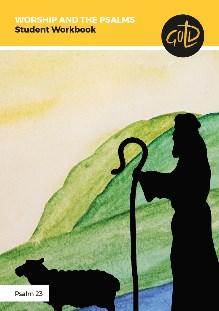
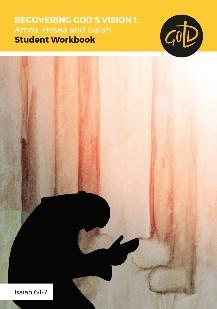
Worship and the Psalms
This course deals with two interlinked subjects as is indicated by the title: worship and the Psalms. By the end of the module you should have a good basis for understanding what ‘worship’ is, in terms of biblical teaching and Christian tradition. You should also be able to understand and expound the Psalms and use them in worship, whether as a worshipper or a leader/enabler of other worshippers.
This is a 10 Block course
Recovering God’s Vision 1: A study of Amos, Hosea and Isaiah
This the first of two courses which deal with some of the most important prophets of the Old Testament, and we hope that by the end you will have a good knowledge of the contents and teaching (theology) of these books. In this course we focus on three prophets who lived before the exile: Amos, Hosea and Isaiah. We note that the prophecies contained in the book of Isaiah address situations far beyond his own lifetime. We ask you to begin to think about the essential marks of a prophet. We also ask you to consider how the message of these prophets applies today.
This is a 5 Block course
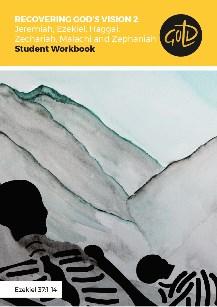
Recovering God’s Vision 2: A study of Jeremiah, Ezekiel, Haggai, Zechariah, Malachi and Zephaniah
This the second of two courses which deal with some of the most important prophets of the Old Testament, and we hope that by the end you will have a good knowledge of the contents and teaching (theology) of these books. In this course we focus on Jeremiah and Ezekiel, followed by the smaller prophetical books of Haggai, Zechariah and Malachi. We also give you the opportunity to study Zephaniah for yourself. Building on the previous course, we ask you to think about the essential marks of a prophet. (Forthcoming)
This is a 5 Block course.
Level 3: New Testament
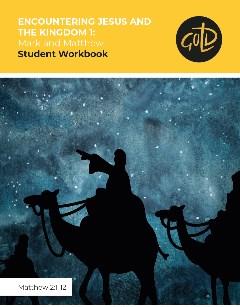
Encountering God’s Kingdom (1): Mark and Matthew
This course deals with the Gospels of Mark and Matthew. It aims: to provide information to understand the context of Jesus’ ministry; to give a good overall understanding of the contents of the Gospels of Mark and Matthew and how these books relate to each other; to offer tools for the interpretation of the Gospel accounts and especially to reflect on how the parables and miracles of Jesus may be understood. We hope and pray that this course will not only give you an understanding of the contents of the Gospel stories, but will enable you to grow in your own faith as a disciple of Jesus and help you serve him in the situation to which he has called you.
This is a 5 Block course
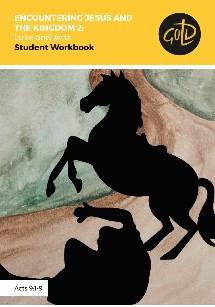
Encountering Jesus and the Kingdom (2): Luke and Acts
This is the second of two courses on the Synoptic Gospels and Acts. This course deals with the Gospel of Luke and the book of Acts. Although the two courses are designed to be studied in sequence, it is possible to study this course without first completing the course on Mark and Matthew. We hope and pray that this course will not only give you an understanding of the contents of Luke and Acts, but will enable you to grow
in your own faith as a disciple of Jesus and help you serve him in the situation to which he has called you.
This is a 5 Block course
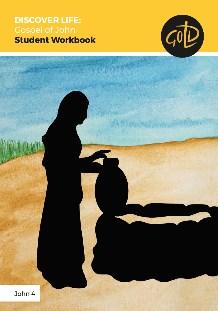
Discover Life: The Gospel of John
This is the first of two courses which deal with the writings ascribed to ‘John’ in the New Testament. In this course we deal with the whole of the Gospel of John. The course aims to: introduce you to the Gospel and its possible historical setting; guide you through the text of the Gospel by means of an interactive workbook; study some significant themes of the Gospel in further depth; consider how the Gospel can be explained and applied today.
This is a 5 Block course
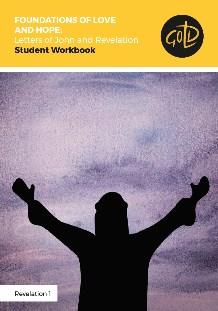
Foundations
of Love and Hope: The Letters of John and Revelation
This is the second of two courses which deal with the writings ascribed to ‘John’ in the New Testament. In this course we deal with the Letters of John and the book of Revelation. The course aims to: introduce you to the Letters of John and their possible historical setting; introduce you to the book of Revelation and its possible historical setting; guide you through the text of these documents by means of an interactive workbook; enable you to consider how these documents can be explained and applied today.
This is a 5 Block course
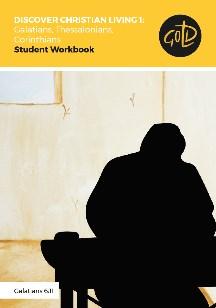
Discover Christian Living (1): A Study of Galatians, Thessalonians and Corinthians
This is the first of two courses which deal with the letters ascribed to Paul in the New Testament. We hope that by the end of the course, you will: have gained a good overall knowledge of the contents and teaching of these letters; will feel confident that you could tackle other biblical books; will be interested to go on to look at the other Letters of Paul. Most of all, we hope that this course will strengthen you in your faith and equip you to be able to serve others in the situation where God has placed you.
This is a 5 Block course
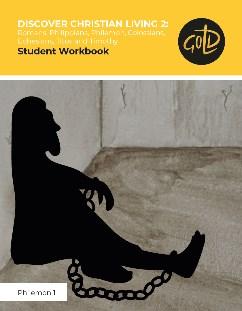
Discover Christian Living (2): A Study of Romans, Philippians, Philemon, Colossians, Ephesians, Titus and Timothy
This is the second of two courses which deal with the letters ascribed to Paul in the New Testament. We hope that by the end of the course, you will: have gained a good overall knowledge of the contents and teaching of the letters to these letters; have a sound basis for further reading and application; will feel confident that you could tackle other biblical books. Most of all, we hope that this course will strengthen you in your faith and equip you to be able to serve others in the situation where God has placed you.
This is a 5 Block course
GOLD Project
Level 3: Christian Studies

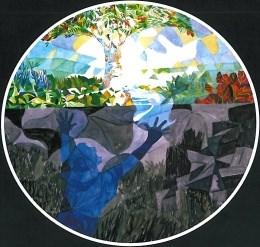
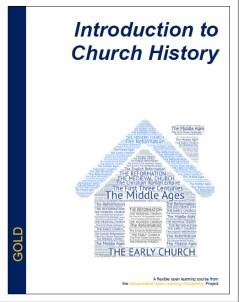
Introduction to Christian Theology
This course aims to provide an understanding of the main doctrines of the Christian Faith, how they arose and the major differences in the views of different sections of the Church.
This is a 10 Block course
Introduction to Christian Ethics
This course aims to develop a simple method for making ethical decisions and apply this to important ethical issues for mission and ministry today.
This is a 10 Block course
Introduction to Church History
This course aims to provide a basic understanding of what has happened during the last two millennia of the Church’s history, and to work out how it can guide the thought and practice of mission and ministry today.
This is a 10 Block course
5. Frequently asked questions
Will it be too hard – or too easy?
The courses are designed to help you learn, whatever your academic level. Many who do not consider themselves ‘good at learning’ are surprised at their abilities. Others with advanced qualifications are stretched and challenged in their thinking. The Bible raises hard questions and we try not to duck them. The courses will stimulate you to understand various viewpoints. They encourage you to interact with the text of the Bible itself, to think through issues from a sound basis of biblical understanding and to come to your own conclusions, convictions and plans for action.
Will I be able to cope with the workload?
Each course is designed to help you pace your studies and to work through the material in a systematic way. With your group you will decide on the pace for the course and when you will meet as a group. If you are struggling with the workload, please talk to your group leader.
How much does it cost?
We try to keep the cost of these courses to a minimum covering the cost of printing and delivery plus resources for your group leader. Our website gives details of the cost for each course. For those who cannot afford this fee, we have a bursary fund. For churches, we can also provide a discount. Please contact us for details.
Can I access the course materials in an electronic form?
The basic course material is supplied in a hard copy workbook. Upon request, course materials can be supplied in a pdf format for those who need this. Our Level 1 courses are available to be studied on the GrowSpace Web App.
Can I study on my own?
The course is designed to be studied as part of a local study group. We also believe that Christian discipleship takes place best when it happens as part of a local community. We therefore do not
GOLD Project
normally allow students to study on their own without participating in such a group.
Who can be a GOLD Leader?
Our programme would not be able to run without dedicated GOLD Leaders. Our GOLD Leaders are volunteers with some basic theological education who feel called by God to enable others to learn about their faith. GOLD Leaders are appointed by the GOLD Project and required to participate in regular training sessions. Leading GOLD study groups can be one of the most rewarding ministries as you see people grow in their knowledge of the Bible and flourish in their calling. If you would like to join our team of GOLD Leaders, please contact us.
How can I start a group?
If you would like to start a group in your context, all you need to do is to find five or more people who are ready to commit themselves to study. These may all be people from one church, or you could get together with people from other churches. Some of our groups even take place at lunchtime in the workplace. If you have someone in mind who can lead the course, that is ideal. Then you can choose a place and time that is suitable for the participants. Contact us and we will work with you to choose the best course to start with and to set up the group. We are even happy to come and run a ‘taster’ session for people to show them how the programme works.
What
is
OHEC, ICES and Trinity College Open Learning?
Interactive Christian Extension Studies (ICES for short) inherited a set of courses from Oakhill Extension College (OHEC). In 2009, ICES was incorporated within Trinity College, Bristol to become its Open Learning Programme. In 2015, Trinity College handed over its student groups and course materials to the GOLD Project.
The GOLD Project offers flexible Open Learning courses based on local study groups for anyone who:
• wishes to grow in knowledge of God and understanding of the Christian faith;
• is committed to systematic, disciplined and in-depth personal study;
• is ready to learn from others in small discussion groups;
• is willing to make use of God-given gifts for mission and ministry in the local church. The programme is designed to be accessible to those who have no previous theological study as well as to those who want to engage with the Bible at a deeper level. The courses are suitable for those who feel called to involvement in different avenues of ministry and mission in the local church as well as those who want to work out how to live more effectively as Christians in daily life whether at home or in workplace and society.
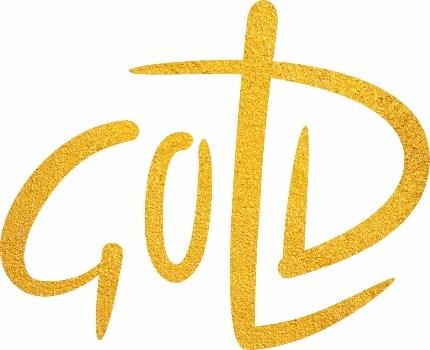
For more information, contact:
info@goldproject.org www.goldproject.org
https://x.com/GOLDiscipleship https://www.facebook.com/groupbasedopenlearningdiscipleship/
